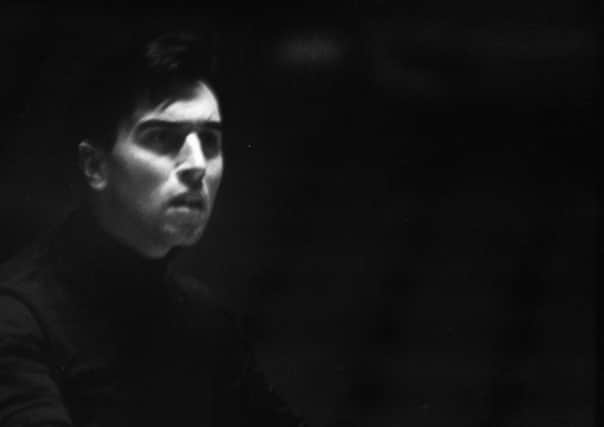Obituary: Claudio Abbado, conductor


He was one of the outstanding maestros of the post-war years and was musical director of three leading orchestras and two of great opera houses. Claudio Abbado had the ability to make musicians and singers, and himself, reassess music that they had performed many times. Scotland greatly benefited from his many appearances at the Edinburgh Festival – indeed, it is thought he may have made more appearances at the Festival than any other artist. He is especially remembered for the historic production of Carmen with Plácido Domingo and Teresa Berganza at the 1976 Festival. Whether in the opera house or in the Usher Hall, an Abbado evening was special.
Nothing typifies Abbado’s desire to push back boundaries more than his first concert with the New Philharmonia Orchestra at the 1966 Festival: a Mozart Symphony and Mahler’s mammoth 4th Symphony. Such adventurous music making was to be his hallmark throughout his career: at La Scala, Milan, the Vienna State Opera, the London Symphony Orchestra and the Berlin Philharmonic.
Advertisement
Hide AdAdvertisement
Hide AdTo ensure that the production of Carmen went ahead Abbado and his colleagues (Berganza, Domingo and Mirella Freni) all substantially reduced their fees. It is said that Domingo signed his contract and left the fee blank, saying he would accept “whatever the Festival could afford”. Abbado followed suit and one of the most memorable productions in the history of the EIF was made possible. Indeed, it was a milestone production and The Scotsman called Abbado’s conducting “swift, boldly etched yet often uncommonly delicate”.
Claudio Abbado displayed much musical talent from an early age. He studied piano, composition and conducting at the Milan Conservatory and then in Vienna. In 1958 he won various international conducting prizes and spent five months with the New York Philharmonic.
In 1966 he made his British debut with the New Philharmonia at the EIF and his talent was acknowledged worldwide.
His appearances at the Festival are too numerous to list completely. In 1981 Abbado did not endear himself to some choristers around Scotland when he decided to cut the chorus for the Bach St Matthew Passion by more than 100 days before the concert. In 1982 he conducted a majestic account of the Verdi Requiem with a star line-up of soloists – Margaret Price, Jessye Norman, José Carreras and Ruggero Raimondi – and the following year conducted magnificent Wagner and Schoenberg concerts in the Usher Hall.
As well as from Carmen, Abbado made two other unforgettable appearances in the pit at the King’s Theatre. In 1967 he conducted Bellini’s I Capuleti ed I Montecchi with Luciano Pavarotti and Anna Moffo and in 1972 conducted Teresa Berganza in Rossini’s La Cenerentola.
In fact, Abbado was reluctant to commit to the work but he was persuaded by his friend Berganza and the production was a triumph. His final appearances at the Festival were in 1999 when he conducted his own Gustav Mahler Jugendorchester in Parsifal and in 2006 with Die Zauberfloete, both in the Festival Theatre. They were suitably dramatic and challenging undertakings for an artist who had given Edinburgh so much wonderful music over the many years.
From 1979 to 1988 he was the principal conductor of the London Symphony Orchestra and principal guest conductor of the Chicago Symphony Orchestra. He was musical director of both the Vienna State Opera and La Scala. Abbado made his debut at Covent Garden in 1968 in a revival of the famous Visconti production of Don Carlos, returned for productions of Un ballo in maschera (with Plácido Domingo), Pelléas et Mélisande and Boris Godunov.
Abbado was never the dramatic, attention-seeking maestro. He coaxed and cajoled an orchestra to play as he wished.
Advertisement
Hide AdAdvertisement
Hide AdIn rehearsal he was uncommunicative and quietly suggested they restart the piece. He was a man of a powerful musical and intellectual background – with a total command of the music and the score. But he had great energy (he was a passionate footballer and mighty competitive player of table tennis), immense style and a gracious dignity. As he made his way through an orchestra at what seemed an Italian gallop, with broad grin and his silken black hair wafting in his wake, he set the tone of the evening. He was there to make music.
“Without music, the world would be a terrible place,” he said on Radio 4 recently. He has left a legacy of recordings, films and CDs which will be enjoyed for many years. To all these undertakings he brought his meticulous preparation, musical technique and a desire to search for new ways of interpreting the score.
An example of his careful preparation and knowing what he wanted was evidenced in 1980 when he was scheduled to conduct the huge Berlioz Te Deum in the Usher Hall. The score includes an organ and Abbado did not rate the Usher Hall instrument. The council refused to repair it and so the Festival director, John Drummond, suggested that Gillian Weir play the organ in St Mary’s Cathedral and have it relayed into the hall. Weir was rushed to the Usher Hall by the police at the end. But it was typical of Abbado: he knew what he wanted and would not compromise.
Abbado was diagnosed with cancer 12 years ago and was afforded many international awards (including an honorary degree from Aberdeen University). He married Giovanna Cavazzoni in 1956. That marriage was dissolved in 1968. Their son Daniele survives him, as does Misha, from his relationship with Viktoria Mullova.